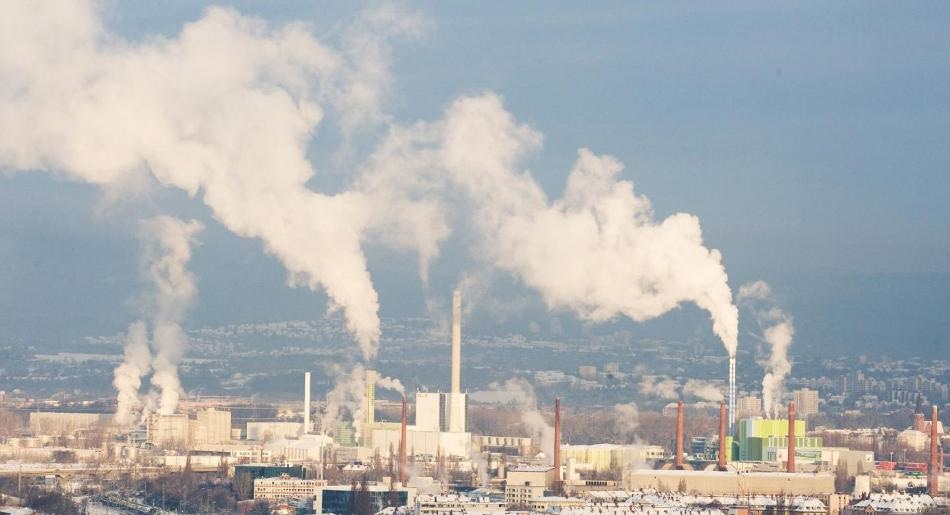Aug 24 2018
Air pollution, especially fine dust, accounts for over four million deaths every year. Nearly 60% of deaths occur due to cardiovascular diseases.
 Finedust from industry, road and air traffic and agriculture pollutes the air and leads to cardiovascular diseases. Picture Source: Peter Pulkovsky (University Medical Center Mainz)
Finedust from industry, road and air traffic and agriculture pollutes the air and leads to cardiovascular diseases. Picture Source: Peter Pulkovsky (University Medical Center Mainz)
The mechanisms which account for vascular damage from air pollution were reviewed by researchers led by Professor Thomas Münzel, Director of Cardiology I at the Department of Cardiology at the Medical Center Mainz of Johannes Gutenberg University Mainz (JGU), along with scientists from the USA and UK. The results of the study have been reported in the latest issue of the European Heart Journal, the world's most renowned cardiology journal.
The high percentage of deaths caused by cardiovascular disease has pushed an international team of experts from the USA, Germany, and England to investigate the negative impacts of air pollution on vascular function in a review article. Crucial research questions focused on air pollution components, such as particulate matter, sulfur dioxide, carbon monoxide, nitrogen dioxide, and ozone, which are especially damaging to the cardiovascular system, as well as mechanisms that negatively impact the vessels.
This report in the latest issue of the European Heart Journal is another important contribution from our Working Group on Environment and Cardiovascular Disease. In summary, it can be said that in relation to the vascular damaging effect of air pollution, particulate matter plays a prominent role. We are especially worried about ultrafine dust. These particles have the size of a virus. When ultrafine matter is inhaled, it immediately enters the bloodstream through the lungs, is taken up by the vessels, and causes local inflammation. Ultimately, this causes more atherosclerosis (vascular calcification) and thus leads to more cardiovascular diseases such as myocardial infarction, acute myocardial infarction, heart failure, and cardiac arrhythmias. Of particular interest is the fact that with regard to the much-discussed diesel exhaust emissions, particulate matter and not nitrogen dioxide (NO2), both of which are produced by burning diesel fuel, have a negative effect on vascular function.
Professor Thomas Münzel
Others who participated in the expert group include Professor Sanjay Rajagopalan of the UH Cleveland Medical Center who is the world-renowned particulate matter researcher; the vascular researcher and cardiologist Professor John Deanfield of the Institute of Cardiovascular Science at University College London; Professor Andreas Daiber, Head of Molecular Cardiology at the Mainz University Medical Center; and Professor Jos Lelieveld from the Max Planck Institute for Chemistry (MPIC) in Mainz.
"The fine dust particles are chemically formed mainly in the atmosphere from emissions from traffic, industry, and agriculture. In order to achieve low, harmless concentrations, emissions from all these sources need to be reduced," stated Professor Jos Lelieveld.
"In the future, we will work intensively with the Max Planck Institute for Chemistry to investigate the causes of cardiovascular disease caused by air pollution, especially in combination with (flight) noise," added Professor Thomas Münzel.